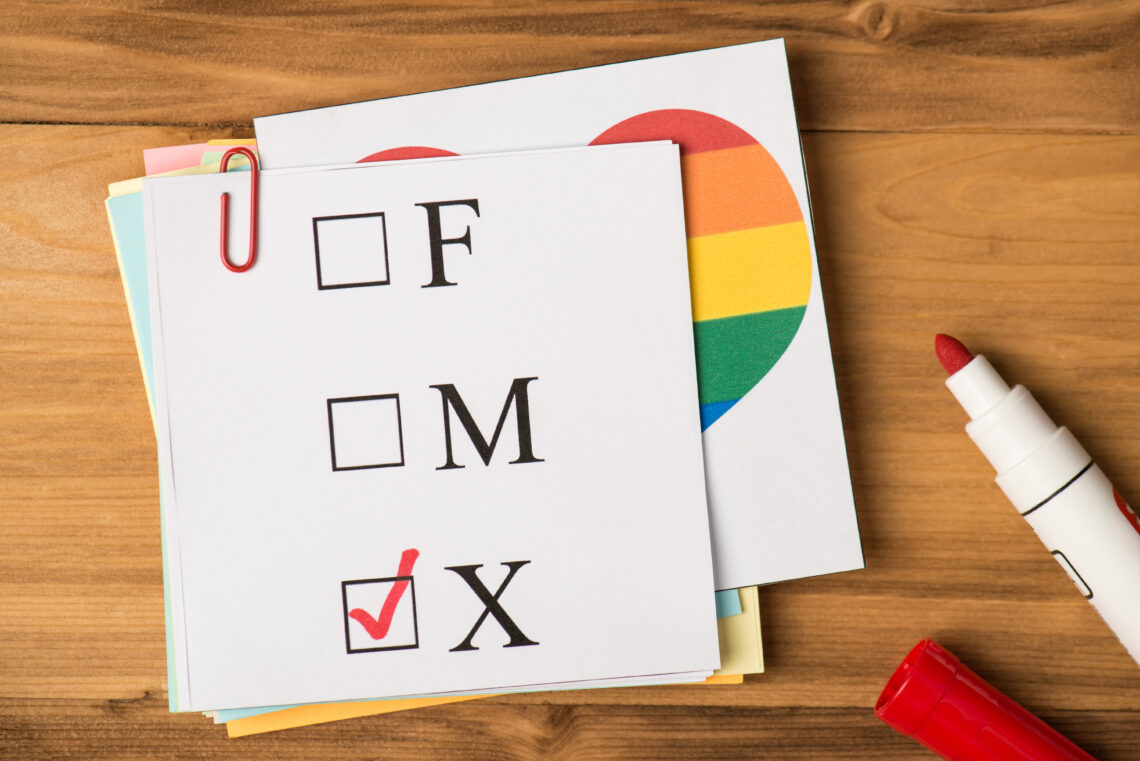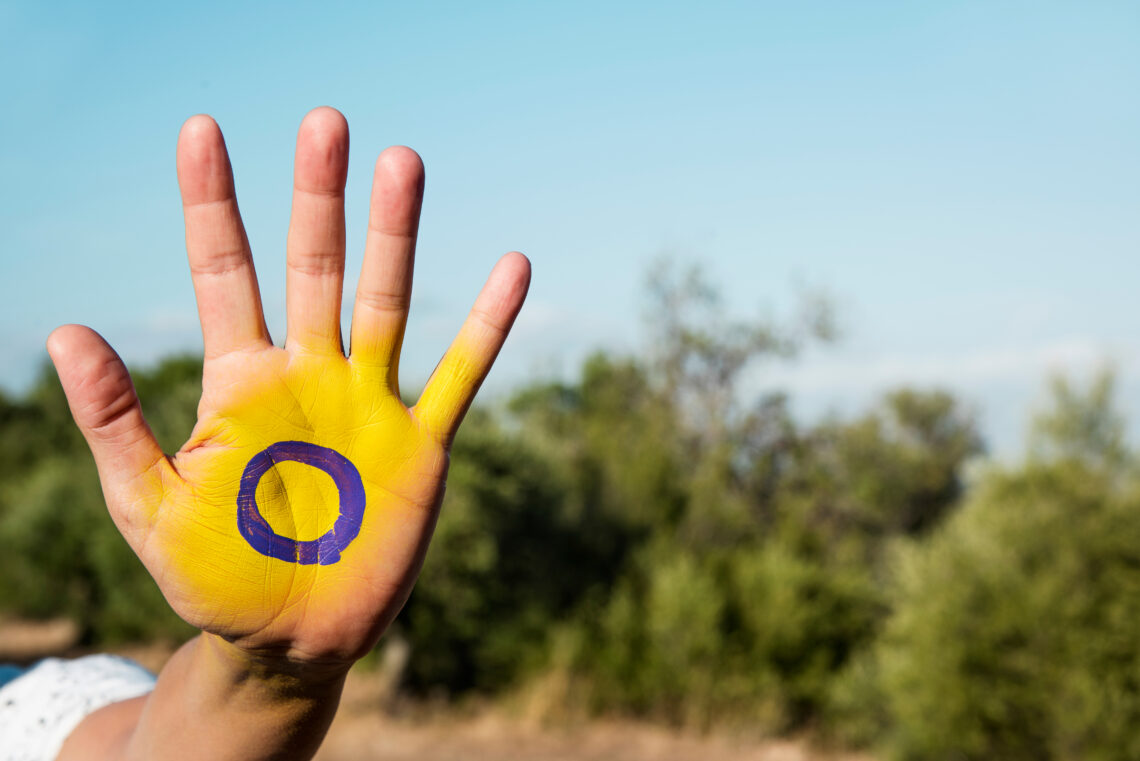There is a lot of confusion about what it means to be intersex, partly because there is no one-size-fits-all answer. Here, we unpack the meaning of the term and try to paint a clearer picture of what it means to be intersex, including some of the unique challenges that intersex people face today.
Related: The amazing intersex hero from “Cowboy Bebop” gets wronged in Netflix’s version
Intersex Definition
According to the Intersex Society of North America, the term intersex describes “a variety of conditions in which a person is born with a reproductive or sexual anatomy that doesn’t seem to fit the typical definitions of female or male”.
For instance, a person may be born with the sex characteristics we commonly associate with men (i.e., a penis and scrotum) but have female internal reproductive organs.
Never Miss a Beat
Subscribe to our newsletter to stay ahead of the latest LGBTQ+ political news and insights.
Some intersex people may be born with both male and female external genitalia, while others may have genitals that cannot be strictly categorized as neither male nor female organs. There are also cases of intersex people who are born with what are called “mosaic genetics”, which cause some of the cells in the body to express XX chromosomes while others have XY chromosomes.
Around 1-2 in 100 people in the US are born intersex. As such, being intersex is far more common than most people think. Worldwide, the estimated percentage of intersex people is about 2% – this is about the same number of people in the world with red hair.
View this post on Instagram
What Does It Mean To Be Intersex?
Like LGBTQ people, intersex people come from all kinds of backgrounds. They also experience a lot of similar social stigmatization, discrimination, and legal barriers. This is largely due to narrow understandings of sex and gender.
Here are some of the major issues that intersex people face in their lives:
Non-consensual Surgeries
According to the Human Rights Campaign, one of the biggest issues affecting the intersex community is non-consensual medical interventions performed on intersex children. Oftentimes, medical professionals will perform “corrective” surgeries to alter the appearance of intersex infants’ genitalia to make them appear more “normal” or aligned with their sex assigned at birth.
Given that these procedures are done on infants and young children, they are performed without the consent of the patients who, oftentimes, only learn of the surgeries later in life. In doing so, doctors (and the parents or guardians who approve of these procedures) take away the patients’ bodily autonomy.
There have been many documented cases of intersex people who have grown up believing there is something wrong with them because their external sex characteristics (which have been modified without their knowledge) do not align with their gender identity. These medical procedures can also be physically damaging, affecting a person’s ability to have children and enjoy sex.

Inadequate Identification Options
Like transgender and non-binary people, many intersex people also face challenges when it comes to obtaining accurate ID and legal documents.
Without accurate identity documents, intersex, trans, and non-binary people have more difficulty with things like opening a bank account or obtaining a loan, renting an apartment, flying out of the country, and even driving a car. Without accurate IDs, trans, non-binary, and intersex people are also more likely to be questioned by police and denied entry into certain spaces.
Today, less than half of US states allow residents to choose “X” as their gender marker on their identity documents.
Stigma And Discrimination
According to the Center for American Progress, intersex people experience more stigma and discrimination compared to other members of the LGBTQ community. They are also more likely to engage in behavior to “avoid exposure to discriminatory treatment, such as avoiding going to the doctor”.
In fact, healthcare is one of the biggest areas in which intersex people face discrimination and stigma. A survey done by the Center found that a whopping 88% of the respondents who identified as intersex and LGBTQ had experienced some form of discrimination from a medical professional in the year before the survey, including “physical abuse, harsh language, and refusal of care”.

Are Intersex People Transgender?
The short answer is no. Some intersex people may identify as transgender, but being intersex does not automatically make you trans.
Intersex people have physical characteristics and sometimes genetic variations that make them have traits that don’t fall into the typical understanding of what it means to be male or female. However, one’s sex characteristics have nothing to do with one’s gender identity, which is defined as one’s internal conception of maleness or femaleness. In short, your sex is wholly independent of your gender.
For transgender people, their sex assigned at birth typically does not align with their gender identity. And so, they undergo gender-affirming steps such as gender affirmation surgery, hormone replacement therapy, etc. While intersex people can identify as trans, they can also identify as a cisgender male, female, or non-binary.
View this post on Instagram
Want To Learn More About What It Means To Be Intersex?
Sometimes, the best way to learn about an unfamiliar topic is by listening to personal accounts from the people who have lived through the experience. Here are some of the most prominent intersex activists today:
- Activist, model, and creator of the award-winning short film Ponyboi, River Gallo
- Academic, writer, and artist Pidgeon Pagonis
- South African middle-distance runner and Olympic gold medalist Caster Semenya
The Bottom Line
Intersex people are those who do not fit neatly into the categories of male or female. There are many different ways that someone can be intersex, and each person’s experience is unique. Unfortunately, due to a lack of understanding and acceptance, intersex people often face significant stigma and discrimination in their daily lives.
Related: 5 films for you and your friends to watch on Intersex Solidarity Day
Don't forget to share:













